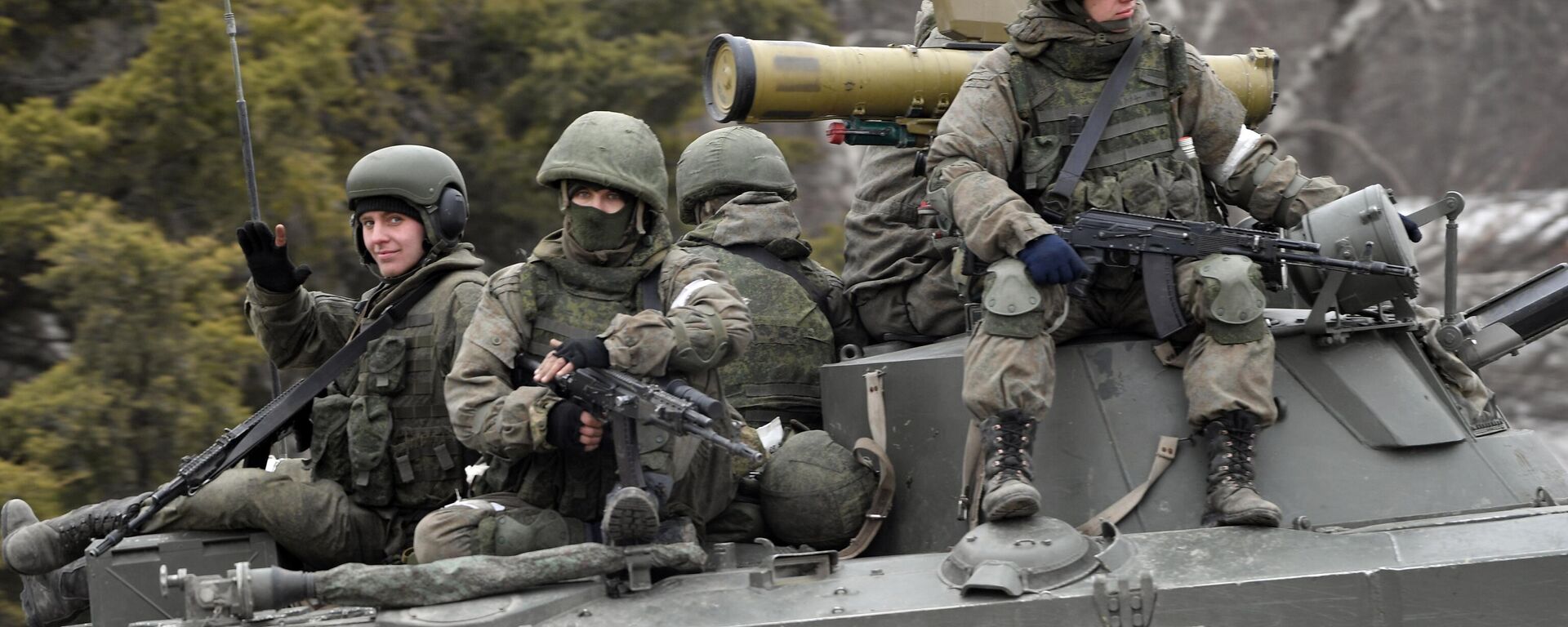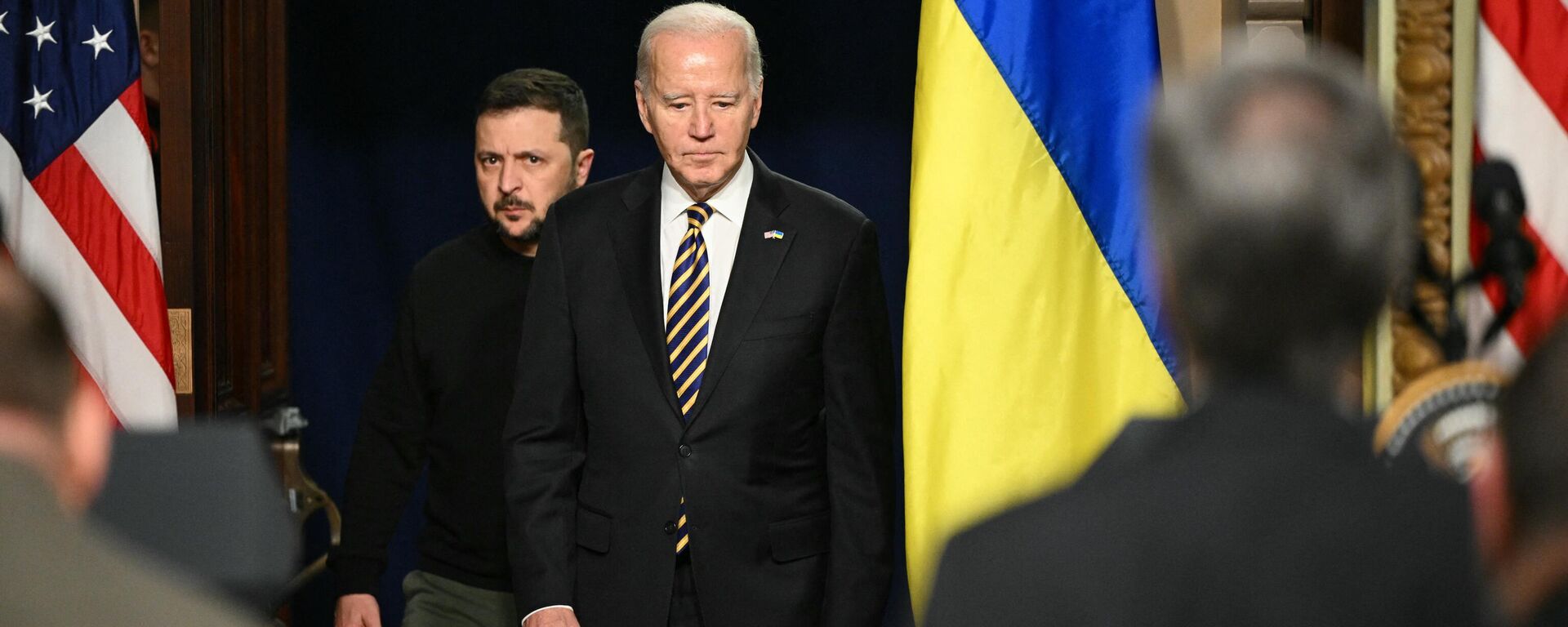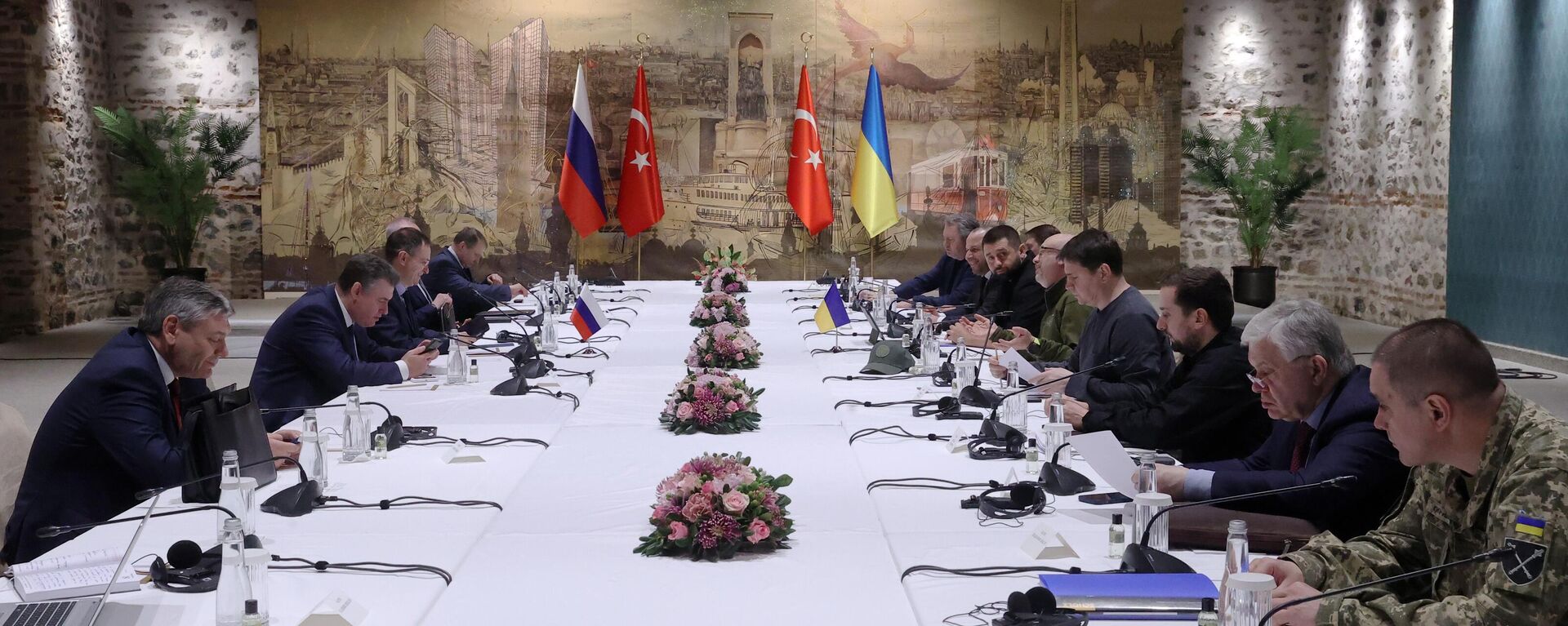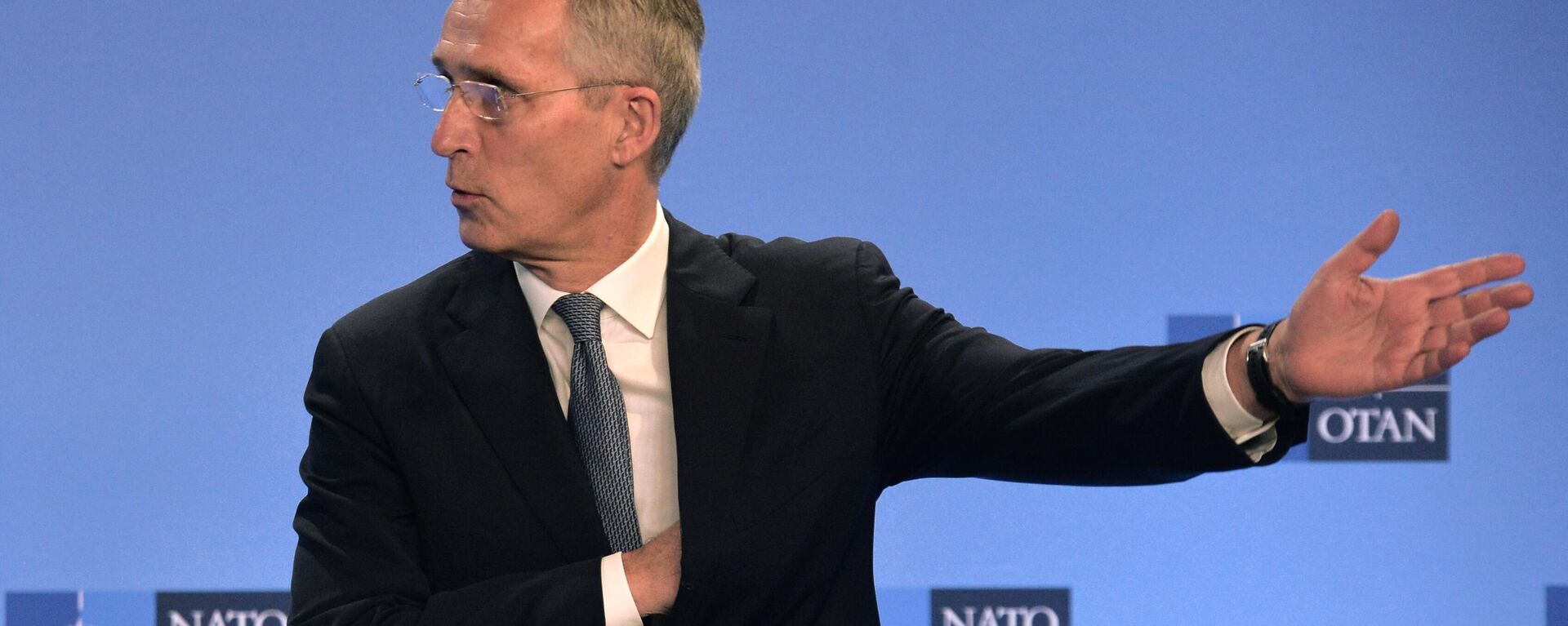German General Warns of ‘Fatal Mistake’ NATO Will Make If Ukraine Proxy War Continues
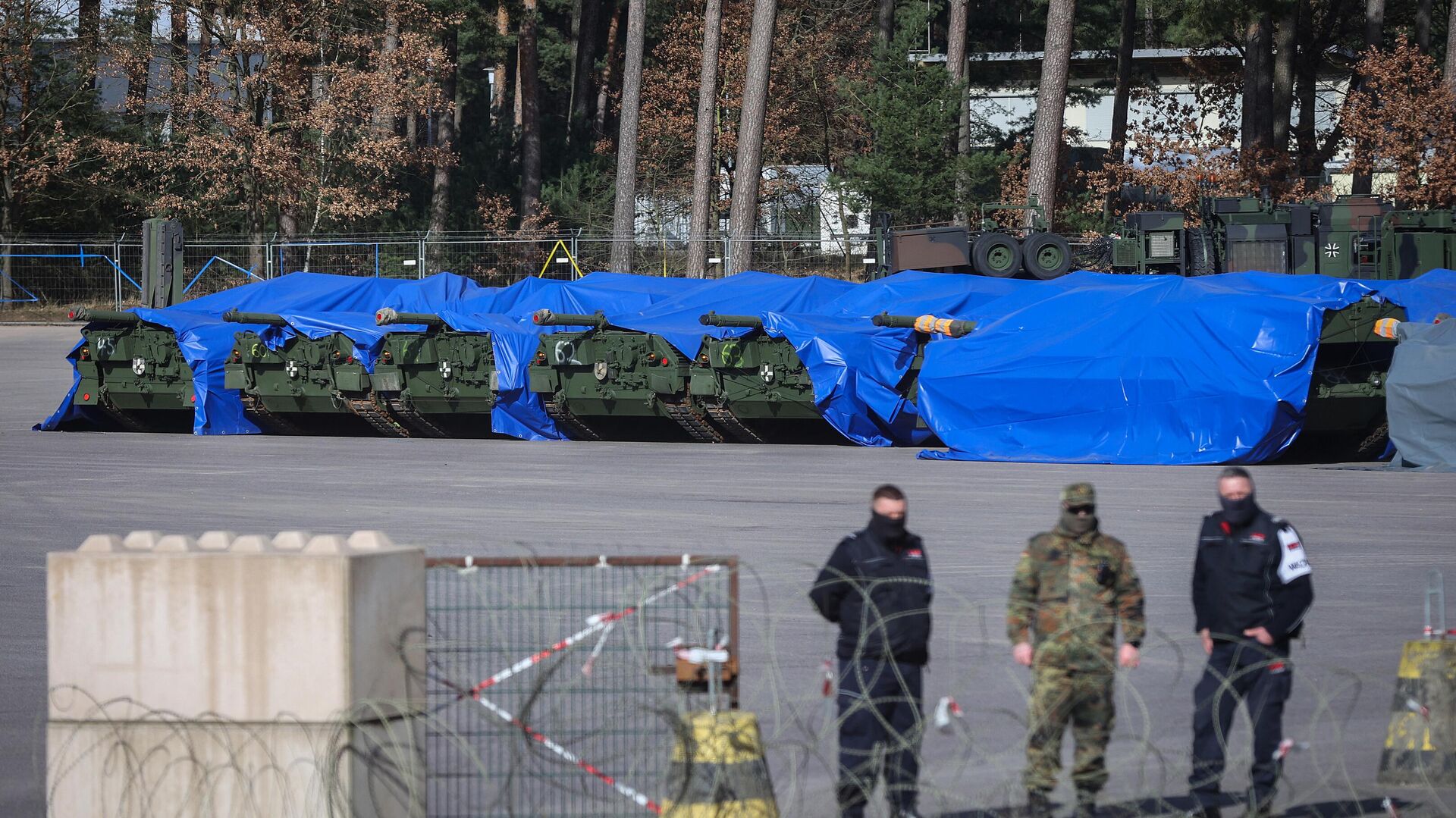
© AFP 2023 / RONNY HARTMANN
Subscribe
Sparked by a bleeding wound of a security crisis in the Donbass and NATO’s fanatical push to absorb Ukraine into the Western bloc, the Ukrainian proxy war could become even more destructive than it has been up to now if the collective West doesn’t return to its senses, a veteran German general fears.
The powers that be in Western countries behind the prolongation of the Ukrainian crisis are “fatally” mistaken in their assumption that Kiev could benefit in any way from the crisis with Russia being dragged out any further, retired Luftwaffe General, former Bundeswehr Chief of Staff, and former NATO Military Committee Chairman Harald Kujat has warned.
“It would be a fatal mistake to believe that Ukraine’s prospects will improve the longer the war continues. On the contrary: the catastrophic consequences of this error can only be averted if it is possible to prevent a military defeat through an early cessation of hostilities and peace negotiations between the two belligerent states,” Kujat said in an interview with Germany’s Overton Magazine.
“The military situation has become very critical for Ukraine after the failure of the offensive last year, and is becoming more difficult with each passing day. The Ukrainian armed forces have lost the ability to conduct offensive operations and, on the advice of the Americans, are trying to reduce their high losses in personnel through strategic defense, and to hold on to the territory they still control,” the general explained.
At the same time, Kujat noted that Kiev is now in an “extremely vulnerable” position in areas crucial for successful strategic defense – lack sufficient air defenses, ammunition for artillery, and suffering a “large deficit of trained soldiers,” with these deficiencies “reinforcing each other in their negative effects.”
Kujat pointed out that Ukraine’s recently passed mobilization law – meant to address the deficit in troops, took almost a year to approve, and was designed as a “compromise” between the need to reinforce Ukraine’s exhausted and depleted military, and a desire by the government to take “into account the increasing resistance of the population” to continuing the proxy conflict with Russia.
“The Ukrainian people finally want peace. That’s why a large majority – as the latest polling shows, are demanding a diplomatic solution. The conscription age has dropped from 27 to 25 years. In addition, a mix of financial incentives and penalties has been introduced for those who, in increasingly large numbers, are trying to evade” military service, the general said.
Ukraine has “major” demographic problems, and has fewer than 200,000 young men ages 20-30 years old to call on, many of them leaving the country. Hence the goals of 400,000 new recruits is “questionable” at best, in Kujat’s estimation.
“As bitter as it is to admit, despite the extensive financial and material support it received from the United States and Europe, Ukraine has failed to turn the strategic situation in its favor. On the contrary, last year, twelve Ukrainian brigades were trained by NATO countries and equipped with modern weaponry to break through Russian defenses in a major offensive which began with high expectations. The offensive failed with great losses,” Kujat recalled.
With the state of Ukraine’s military becoming “increasingly critical since then, pressure has increased on the West to increase support with more weapons and financial donations. At the same time, blame is already beginning to be assigned in the event that Ukraine suffers a military defeat,” the general warned, recalling criticisms coming from Kiev regarding the alleged slow pace of German weapons deliveries, without an explanation of “which weapon systems could have changed the course of the war, at which point in time and in what way.”
Missed Opportunities
General Kujat, who was one of the few voices in the NATO military establishment who anticipated as early as February 2022 that Russia would not be defeated in Ukraine, recalled that by November 2022, he had been joined in his appraisal by then-Pentagon Joint Chiefs Chairman Mark Milley, who said Ukraine had achieved everything it could on the battlefield and should go to the negotiating table.
“But the American government was apparently convinced that Russia, next to China the most important geopolitical rival, could be permanently weakened politically, economically and militarily” by continuing the conflict – a perspective which became “one of several misjudgments by the ‘collective West’” which would end up costing Ukraine dearly, and have knock-on implications for the West itself, in Kujat’s view.
The Ukrainian crisis could have been avoided entirely had the US and NATO been willing to “seriously negotiate” the Russian draft security treaties proposed by Moscow in late 2021, the general recalled, adding that another opportunity to end the conflict – through talks in Belarus and Istanbul in the spring of 2022, was torpedoed by the West.
“As the war progressed, Ukraine was never again able to return to such an advantageous position for a negotiated settlement that would take its interests into account to such a great extent. And although the media largely ignores this fact to this day, at least in the United States, the truth is becoming increasingly prevalent,” Kujat said, pointing to the publication of an article in Foreign Affairs magazine earlier this month on the Istanbul talks which could have nipped the crisis in the bud.
Other “misjudgments” include the West’s sanctions policy, the general said, recalling that the goal if “forcing Russia to stop hostilities without causing economic disadvantages to itself” was “never even within reach” due to a “complete underestimation” by Western nations of Russia’s “economic staying power,” and “the negative effects of the sanctions [being] primarily borne by the European states.”
“The misjudgments of Russia’s military strength has proven particularly serious,” Kujat added, noting that while the Russian military was presented as an unmotivated, poorly trained, armed and equipped force led by incompetent and inexperienced commanders, reality has proven otherwise, with the Russian military learning from its early mistakes and dramatically building up its capabilities.
Ukraine’s Deadly NATO Ambitions
Commenting on NATO’s recent pursuit of a €100 billion five-year fund of support for Kiev, Kujat said the concept hinges on the idea that the Ukrainian crisis will continue for another five years. “The current military situation does not suggest that this is a realistic assessment,” the general believes.
As for Ukraine’s ambition to join the alliance, the general stressed that Kiev “does not meet any of the criteria set out in Article 10 of the NATO Treaty,” – which require unanimous agreement among allies for new members, and that the applicant country is able to “contribute to the security of the North Atlantic area.”
“NATO is a system of mutual collective security. Accordingly, a future member must offer the guarantee that it can make a concrete contribution to all current member states. In the case of Ukraine, the opposite is true. With Ukraine, NATO would inherit the risk of a conflict with Russia, and thus endanger the security of all member states. NATO membership for Ukraine must therefore be ruled out for the foreseeable future under the prevailing security policy and geostrategic considerations,” the general summed up.

